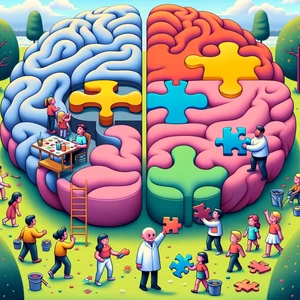Ideas
Research should be accessible to the people who fund it. Since my work examines real-world questions, I have created these plain-language summaries to share selected research output with anyone interested, not just other researchers.

Public Support for Environmental Regulation: When Ideology Trumps Knowledge
- When we gave property owners balanced information about a new law requiring cleaner heating systems, it increased their knowledge but didn’t change whether they supported the law or planned to switch heating systems.
- Property owners who kept their fossil fuel heating systems mainly said it was because switching was too expensive and their current system still worked fine.
- Those who switched to cleaner heating were motivated by wanting their country to be independent from fossil fuel imports and by wanting to help protect the climate.
- Simply providing more facts and information doesn’t change people’s minds about controversial environmental policies. Their existing values and priorities matter much more.

Protecting People from Themselves? Paternalistic Temptations of German Economic Policy
- When people choose something that seems bad for them (like gambling or working long hours), that choice reveals a value to them that outsiders can’t see or measure, but it’s still real and should be respected.
- When governments ban businesses from offering something (like high-interest loans or overtime work), they’re actually taking away people’s ability to choose those things even though the law technically only restricts the business, not the customer or worker.
- Smart regulation can protect vulnerable people while preserving freedom for others, like automatically enrolling everyone in retirement savings but making it easy to opt out if you really don’t want to save.

Knowledge and Freedom: Evidence on the Relationship Between Information and Paternalism
- When people lack knowledge about the consequences of their choices, others are far more likely to override their decisions and choose for them.
- Most people share helpful information with others making decisions.
- When making decisions for others, people mix their own preferences with what they think the other person wants, rather than purely implementing what the person would choose if fully informed.
- When deciding for others, people gravitate toward imposing “safe” choices as if they were more objectively correct.
- People systematically believe that others share their preferences more than they actually do, which biases how they make decisions on behalf of others.